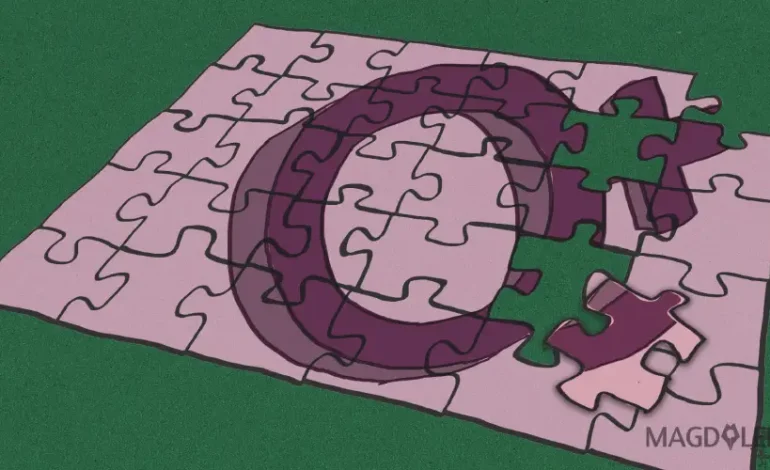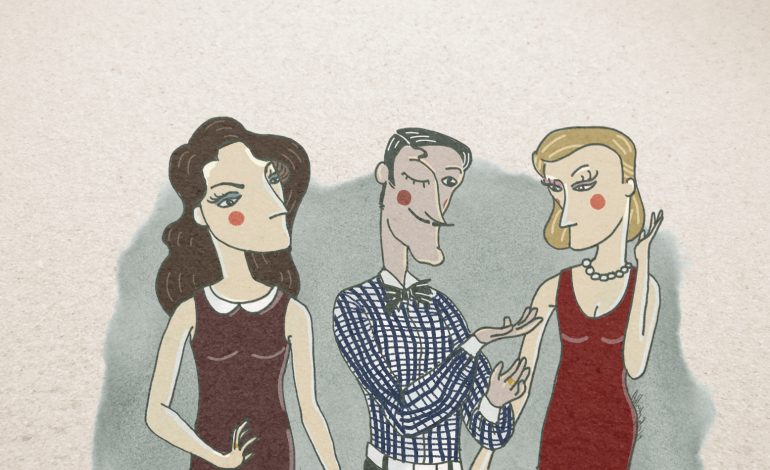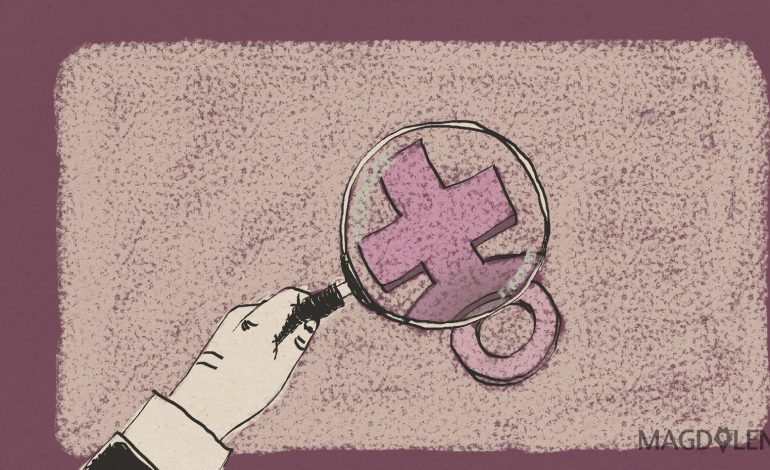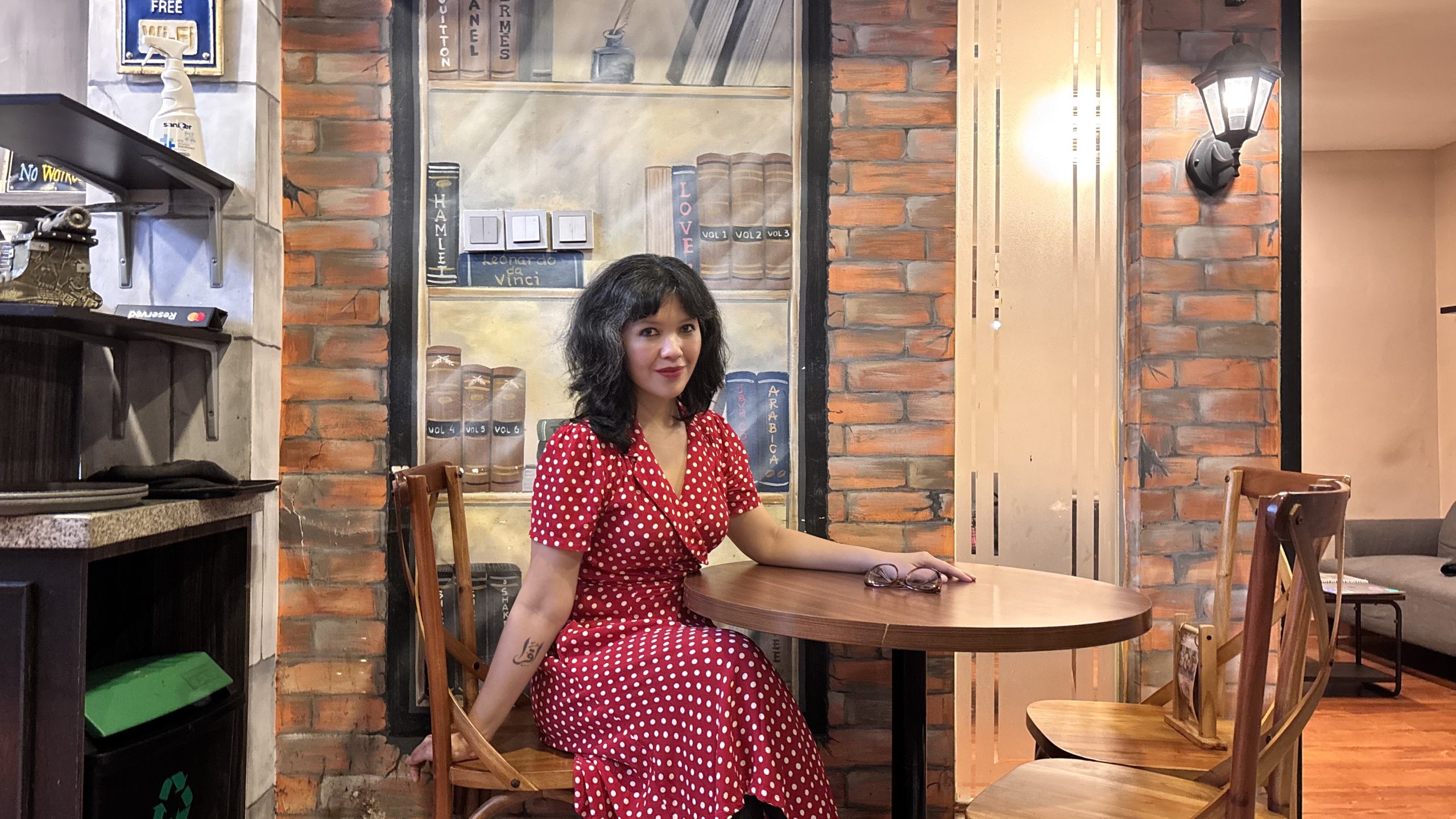How Indonesia Made Me a Feminist

When I was twelve years old, my mother lent me the nickel and silver Equal Rights Amendment bracelet that she had proudly worn in the 1970s while cresting the second wave of feminism and fighting for an end to legalized sexism in the United States.
A ten-year battle failed to seal the amendment’s ratification. Shortly after I entered the world, the ERA was laid to rest. Though I already towered over my mother’s 154 centimeters, at twelve years old I imagined her an indomitable giant and tireless warrior for women, the poor, mentally ill, lost children, and all others desperate and downtrodden. My mother called herself a feminist, and so I, too, proudly bore this shield against all injustice.
One school day at lunch recess, with my ERA bracelet boldly encircling my wrist, I approached a group of archetypal cool kids – boys with long, messy locks and girls with thick, black eyeliner. They formed a circle on the lawn. A few of the boys kicked around a hacky sack in the center. One broke from the foot play and came to sit next to me, glistening and red-faced. He glanced at my wrist and asked me what ERA stood for. After my excited explanation, he burst out in laughter and asked if I was a lesbian or something.
My recollection of how I responded has been erased by the immediate and overwhelming embarrassment of becoming, once again, the target of schoolyard teasing, as well as the fear that perhaps this boy had intuited the presence of the many gays and lesbians that composed my family and our friendship circle. This was 1992, after all, and much of the United States was still unforgiving of a sexual orientation considered to be a lifestyle choice.
I never wore the bracelet again, nor did the word “feminist” cross my lips for the next two decades. Riot Grrrl came and went, and though I coveted the music and embraced the punk ethos of bands like Bikini Kill and Sleater-Kinney, I wore blinders to their third wave feminism. I mourned Kurt Cobain’s death, but knew nothing of Cobain the feminist.
By the time I entered college, I took to scoffing at the notion that educated, white, American women had anything at all to fear in a world that seemed to present us with nothing but more privilege than we had rightly earned. Feminism, I asserted, was a luxury of women who could attend college, who were never wrongfully abused or accused because of their skin color, and who had never been hungry.
Last year, 16,000 kilometers away and two college degrees later, I found myself to be desperate and downtrodden. Five years earlier, I had come to Indonesia for my doctoral research on local rock music, and I remained here for work. I was involved with a passionate artist who was deeply entrenched in the art and music scene into which I had invested my academic musings and professional life. I had weathered two years with this man, whose passion gave way to possessiveness and whose physical abuse was almost a relief after the psychological terror he waged every day and every hour.

My fear of him weighed only slightly more heavily on my heart than the fear that someone would find out. Would this ruin my professional reputation? Would our mutual friends call me a liar? Would my allies demand to know why I had been so naïve or condemn me for not leaving? It seems such a simple thing to expect of someone who has the legal freedom and financial resources to walk away. We weren’t married. We had no children. I had no excuse.
But I stayed. The time window for submitting my dissertation and completing my PhD would close by year’s end. But I couldn’t drown out his noise and my own internal critic long enough to write a sentence, let alone a chapter.
I can’t recall all of the fragmented moments that ultimately pieced together my escape route. A professor offered kind and supportive words on my research. A boss granted me time away from work and dedicated toward writing my dissertation. The American domestic abuse hotline became a lifeline in my darkest hours. And there was always music. My anthem for the year was Florence and the Machine’s “Shake It Out”:
And it’s hard to dance with a devil on your back
So shake him off
By the end of the year, I finished my dissertation and crossed the ocean to defend my work in front of professors and peers. And I shook off the devil. But I was not yet free. The social conditioning that lulled me into believing that women’s rights were secondary to others and numbed me with all of its little, daily, acts of violence until I couldn’t identify the abuser in my own bed still gripped me firmly by the ankles.
Indonesia made me a feminist because it was the backdrop for my greatest struggle as a woman and my greatest personal victory over violence. In Indonesia, I reclaimed my independence from a man’s control.
It wasn’t until I was sitting for my dissertation defense that the proverbial epiphany lit up my brain like fireworks. One of my professors asked why I had not critiqued the hyper-masculinity of the rock music scene I researched. After all, I was diligent enough in my ethnographic critique not to turn these musicians – almost exclusively men – into heroes.
I was stunned by my own oversight. How could I assume that the lack of women in the music scene was due to their lack of interest and not to their exclusion? How could I not hear the sexism in artists’ onstage humor or cringe at women’s sexual exploitation in gig flyers, music videos, and social media posts?
It is April. I am sitting with Kartika Jahja, prominent musician, VAW activist, and longtime friend. We are excitedly planning a new campaign to address gender inequality and violence against women in Indonesia through the media we know best: music and the arts.
We acknowledge that we bring our personal biographies to this undertaking. We also bring our talents in music and social critique to this critical work. We concur that Indonesia needs a paradigm shift when it comes to women. Gender mainstreaming is a pipe dream in a nation where many women – and all gay, lesbian, bisexual, and transgender people – are denied basic human rights by customs and regional bylaws.
We worry that most advocacy work tends to treat the symptoms – street harassment, wage inequity, domestic violence – rather than inquire on the cause. And we want to mount an attack on the cause: that potent social conditioning that has enabled straight men to assume moral, legal, and economic superiority over all “others.” So we muster up our personal strength, professional prowess, and community of supporters – women and men – to take on the fight for equality through the greatest testaments to our shared humanity: our songs, paintings, and poetry. Bersama Project is born.
And so this is how Indonesia made me a feminist. It is not because I first witnessed gender-based discrimination or violence here. We have street harassment, wage inequity, and domestic violence in abundance in my home country. It is not because Indonesia alone cultivates a hyper-masculine entertainment industry that almost wholly excludes women as creative equals – or sees them merely as pretty or provocative window dressing. That is also true in the United States, and certainly of the mainstream popular music industry that has influenced many of Indonesia’s artists, promoters, and record labels. No, I am not in the business of comparing countries by measuring inequality in degrees of desperation.
Indonesia made me a feminist because it was the backdrop for my greatest struggle as a woman and my greatest personal victory over violence. In Indonesia, I reclaimed my independence from a man’s control. I asserted my voice as a leader in my field. I applied my talents toward ensuring that fewer women experience violence, exploitation, or discrimination in the future.
I write my story now to take the last step toward the light-footedness of freedom: to let go of fear. Fear of victim blaming. Fear that others will wonder why I wasn’t strong enough to fight back or leave sooner. Fear that my past will overshadow my potential. While it should not fall on the shoulders of any one woman to fight back against her abusive partner, cultural norms, social conditioning, or decificient laws that cast a blind eye on inequality, it is only by raising our voices, one by one, that we can raise collective consciousness. By sharing our stories, we may also bestow the gift of hope on others struggling to be free.
Indonesia made me a feminist because it led me back to my mother, who first instilled in me the belief that women deserve equal rights. While she could not keep the world and all of its naysayers at bay, she did gift me with the blood of a fighter and heart of an activist. And today, she is the mother of a feminist.
Rebekah E. Moore is an American-born public ethnomusicologist and co-founder of Bersama Project, a foundation to promote gender equality and an end to violence against women through music and the arts.






















